Bereavement and grief are two terms that are often used interchangeably, but they have different meanings. It is normal to experience both bereavement and grief after a loved one dies. In this comprehensive guide, we will explore these concepts in more detail.
We will discuss what bereavement and grief are, the five stages of grief, their signs and symptoms, possible causes, how to deal with bereavement and grief, and ways to help someone who is grieving. We will also hear from experts on the topic of grief and bereavement.
Contents
Understanding Bereavement And Grief
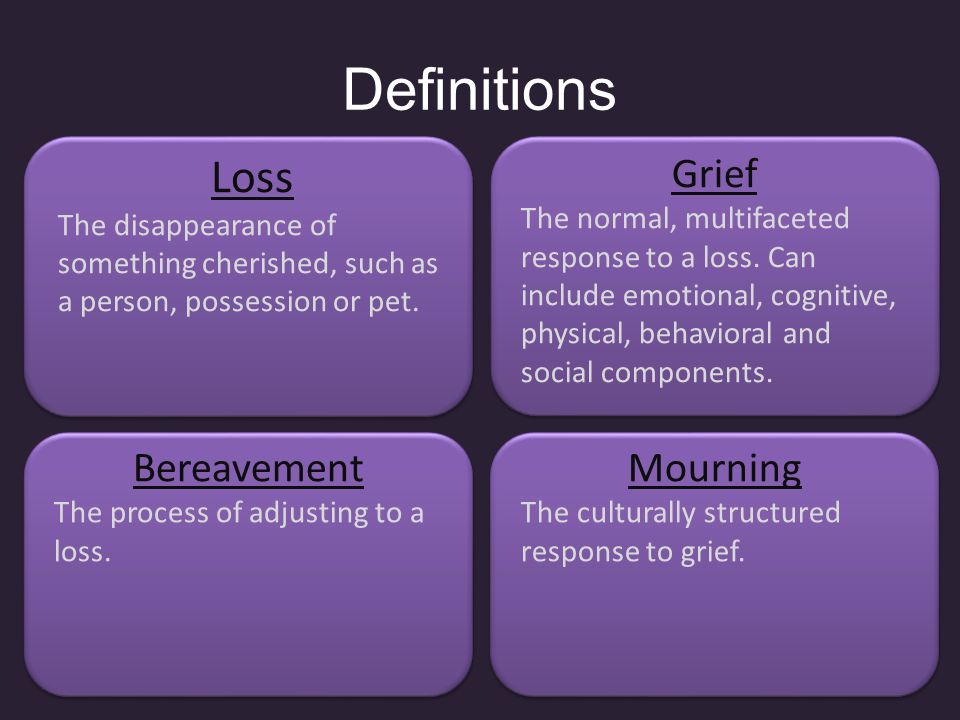
Bereavement is the state of being bereaved or losing someone you love. Grief is the emotional response to bereavement. The two terms are often used interchangeably, but they have different meanings. Bereavement refers to the objective fact of a person’s death, while grief refers to the subjective experience of loss.
The Five Stages Of Grief
Grief is a natural response to loss, and it can be accompanied by a wide range of emotions, including sadness, anger, anxiety, fear, guilt, and loneliness. The five stages of grief are denial, anger, bargaining, depression, and acceptance.
- Denial: This is the stage where you refuse to believe that your loved one has died. You may feel like you are in a state of shock and numbness.
- Anger: This stage can be accompanied by feelings of rage, bitterness, and resentment. You may feel like you want to lash out at anyone who tries to talk to you about your loss.
- Bargaining: This is the stage where you may offer to do anything to bring your loved one back. You may plead with God or the universe to change what has happened.
- Depression: This stage can be very difficult, and it is characterized by feelings of sadness, emptiness, worthlessness, and hopelessness.
- Acceptance: This is the stage where you come to terms with your loss and begin to rebuild your life. You may find new meaning in life and start to look forward to the future.
NOTE: Not everyone goes through all five stages or experiences them in the same order.
Signs And Symptoms Of Bereavement And Grief
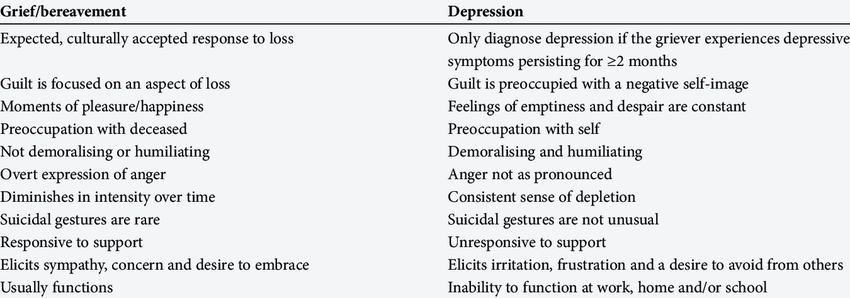
The signs and symptoms of bereavement and grief can vary from person to person. They can also change over time. Some of the most common signs and symptoms include:
- Feeling sad, anxious, or overwhelmed
- Experiencing difficulty sleeping or eating
- Having trouble concentrating or focusing on tasks
- Feeling isolated from others
- Experiencing physical symptoms such as headaches, nausea, or chest pain
Possible Causes Of Bereavement And Grief
There can be many different causes of bereavement and grief. Some of the most common include:
- Death of a loved one: This is the most common cause of bereavement and grief.
- Loss of a job or financial security: This can lead to feelings of insecurity and anxiety.
- Divorce or separation: This can be a very difficult experience, leading to feelings of loneliness and sadness.
- Death of a pet: This can be a very traumatic event for some people, leading to feelings of grief and loss.
- Losing a job or home: This can be a very difficult experience, leading to feelings of sadness and anxiety.
- Traumatic events such as war, natural disasters, or sexual assault: These events can lead to feelings of shock, terror, and devastation.
Coping With Bereavement And Grief
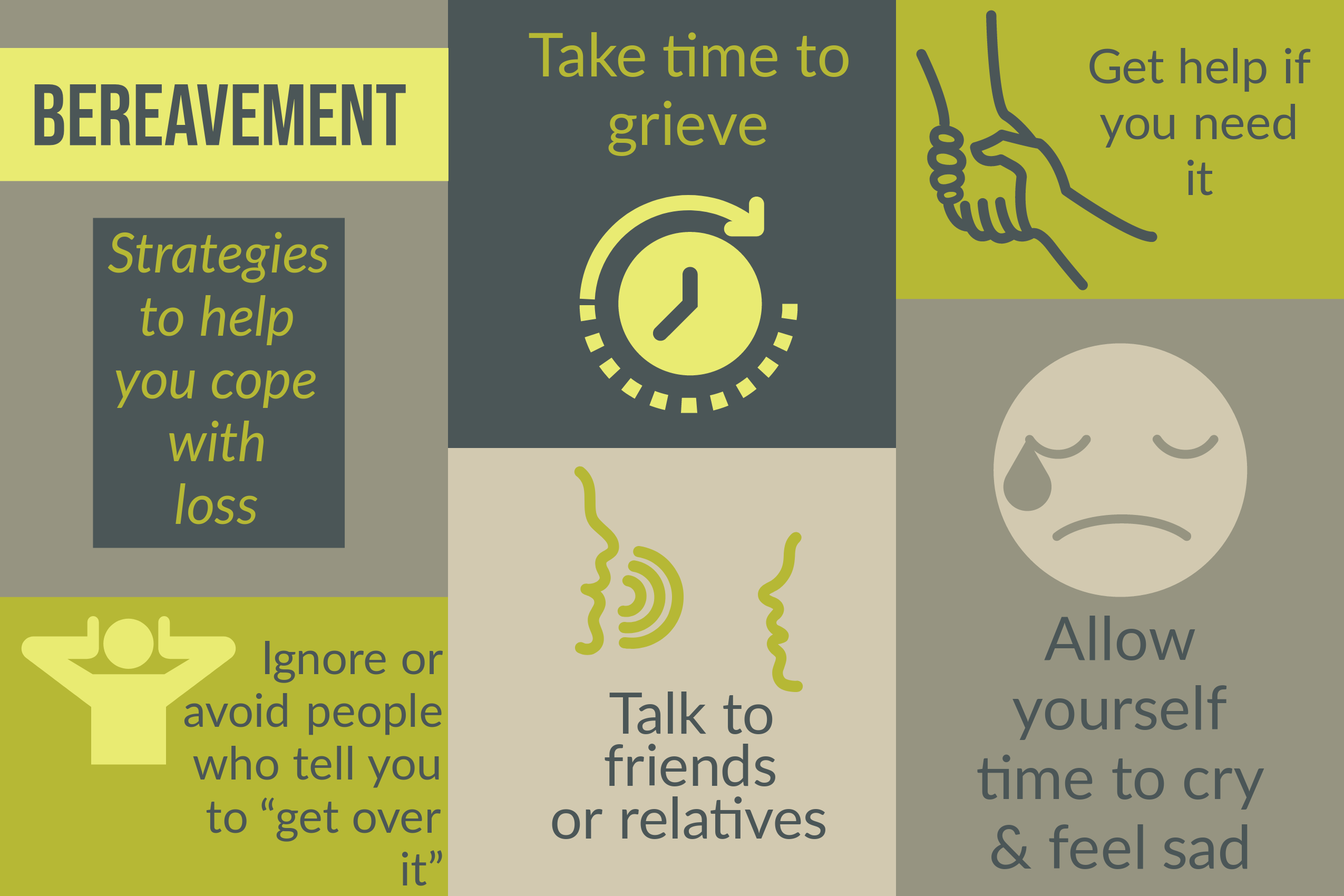
There are many different ways to cope with grief. Some people find that they need time alone while others prefer to be around others. Some people find that they need to keep busy while others prefer to take it easy. Here are some tips for coping with grief:
Take care of yourself: Make sure to get enough sleep, eat healthy foods, and exercise regularly. This can help you cope with the stress of loss.
Talk to someone: It can be helpful to talk to someone about your experience, whether it is a friend, family member, therapist, or support group.
Allow yourself time to grieve: It is important to give yourself the space and time to mourn your loss. Don’t try to rush through your grief or ignore your feelings.
Talk about your loss: It can be helpful to talk to someone about your experience, whether it is a friend, family member, therapist, or support group.
Connect with others: Some many different groups and organizations offer support for people who are grieving. These groups can provide a sense of community and support for those who are struggling.
Find meaning in your loss: Some people find that they can gain new insights and understanding from their experiences with bereavement and grief.
Get professional help: If you find that you are struggling to cope with your loss, it may be helpful to seek professional help. Many different types of therapists can help you deal with bereavement and grief.
Talking To a Professional
If you are having a difficult time coping with your loss, it may be helpful to talk to a professional. Many different types of therapists can help you deal with bereavement and grief, including:
Psychologists: These professionals specialize in helping people deal with emotional and psychological issues.
Psychiatrists: These professionals can prescribe medication to help you cope with your grief.
Social Workers: These professionals can help you connect with resources and support groups in your area.
Clinical Psychologists: These professionals specialize in helping people deal with emotional and psychological issues.
Clinical Counselors: These professionals are trained to work with people who are struggling with a range of issues, including bereavement and grief.
Therapies For Bereavement And Grief
There are many different therapies available for bereavement and grief. Some of the most common include:
Psychotherapy: This is a type of therapy that involves talking to a therapist about your experiences and feelings.
Group therapy: This is a type of therapy in which you talk to other people who are also grieving the loss of a loved one.
Meditation: This is a type of therapy that involves focusing on your breath and calming your mind.
Creative therapies: This includes activities such as art therapy, writing therapy, and music therapy.
- Art Therapy: This is a type of therapy in which you use art to express your feelings and thoughts about your loss.
- Writing Therapy: This is a type of therapy in which you write about your experiences with bereavement and grief.
- Music Therapy: This is a type of therapy in which you listen to music and discuss its effects on your emotions.
The Ball And The Box Analogy
This analogy is often used to describe the grieving process. The ball represents the person who is grieving and the box represents the person who has died. As time goes on, the ball slowly starts to lose its color and brightness.
This represents how the person who is grieving starts to lose their sense of self and becomes less vibrant. The box remains unchanged, representing the person who has died.
As time goes on, the ball eventually falls out of the box and dies. This represents how the person who is grieving comes to terms with their loss and moves on from it.
Helping Someone With Bereavement And Grief
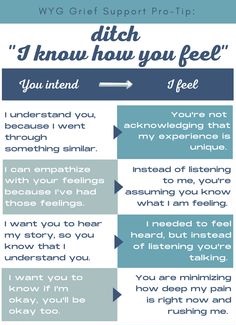
If you know someone who is grieving the loss of a loved one, here are some things you can do to help:
Listen without judging: It can be helpful to just listen to the person without judging them or telling them what they should do.
Give practical help: Offer to help with things such as grocery shopping, cooking, or cleaning.
Offer emotional support: Let the person know that you are there for them and that you care about them.
Avoid clichés: Don’t say things like “time will heal all wounds” or “he/she is in a better place.”
Be there for them: Let the person know that they can rely on you for support.
Experts On Bereavement And Grief
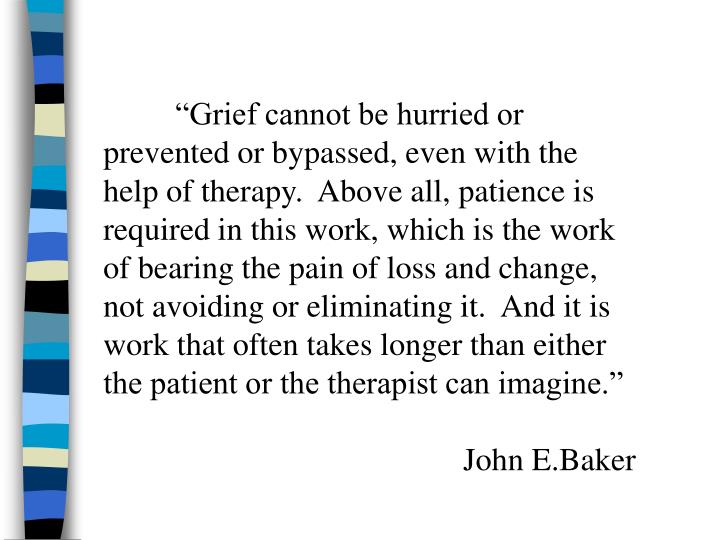
There are many experts available who can help you deal with bereavement and grief. Some of these experts include:
- Grief counselors: These professionals specialize in helping people deal with the emotions associated with grief.
- Death educators: These professionals teach about death, dying, and bereavement.
- Palliative care specialists: These professionals help people who are dying and their families deal with the emotional and psychological aspects of death.
Experts’ View On Bereavement And Grief
There is many different experts’ view on bereavement and grief. Some of the most common include:
- Bereavement is a normal process: Most experts believe that bereavement is a normal process that all people go through after the loss of a loved one.
- Grief lasts for a long time: Some experts believe that grief can last for many years after the death of a loved one.
- Grief is different for everyone: Everyone experiences grief in their way, and there is no right or wrong way to grieve.
Case Study
In this case study, we will explore the experience of bereavement and grief of a woman named Sarah.
Sarah lost her husband to cancer after a long battle with the disease. She was left with two young children to care for on her own.
The first few months after her husband’s death was very difficult for Sarah. She felt like she was in a state of shock and could not believe that he was gone. She experienced a lot of pain and sadness and found it difficult to get out of bed or do anything else.
Sarah eventually started to attend a support group for widows and began to talk about her experiences. This helped her to feel less alone and start to process her grief. She also started to see a therapist who helped her to work through the pain she was feeling.
After a few years, Sarah began to feel better and was able to function normally again. While she will always miss her husband, she has been able to find happiness again in her life.
Conclusion

Bereavement and grief can be very difficult to deal with. However, there are many different therapies and support groups available that can help you cope with your loss. There is no right or wrong way to grieve, so allow yourself to feel whatever emotions you are experiencing. Talk to a professional if you need help dealing with your grief. And remember, at the end of the tunnel, there’s light and hope. So don’t give up and keep pushing through!
A Word From Therapy Mantra
Your mental health — Your psychological, emotional, and social well-being — has an impact on every aspect of your life. Positive mental health essentially allows you to effectively deal with life’s everyday challenges.
At TherapyMantra, we have a team of therapists who provide affordable online therapy to assist you with issues such as depression, anxiety, stress, workplace Issues, addiction, relationship, OCD, LGBTQ, and PTSD. You can book a free therapy or download our free Android or iOS app.


